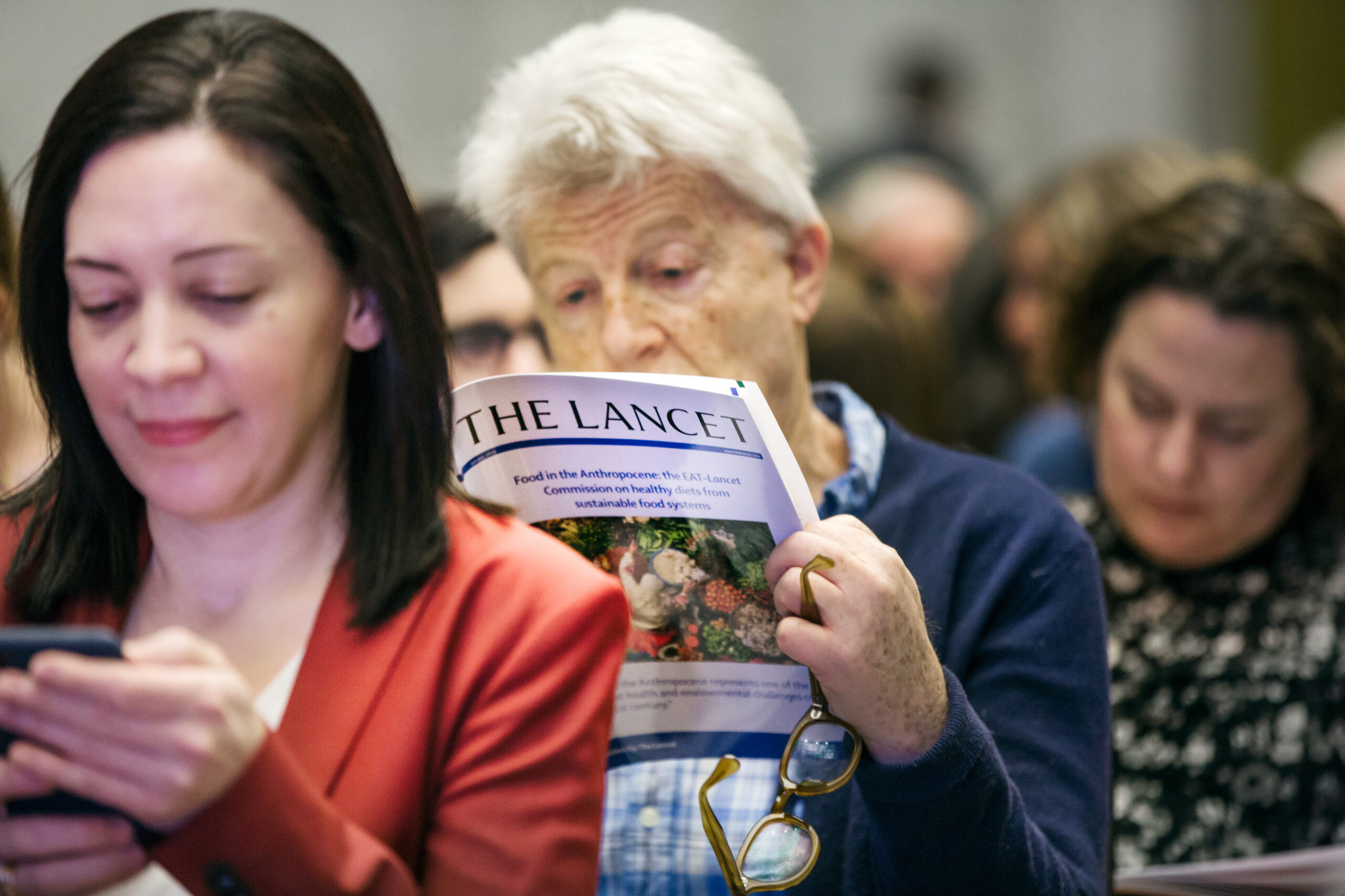With more than 600 policy citations, the EAT-Lancet report is now undisputedly one of the most influential scientific reports in the world.

EAT Lancet Report
With more than 600 policy citations, ‘Food in the Anthropocene: the EAT-Lancet Commission on healthy diets from sustainable food systems’, is now undisputedly one of the most influential scientific reports in the world. More commonly known as the EAT-Lancet report, the scientific paper was groundbreaking in its holistic approach, covering both the health and environmental aspects of food.
“I think it had an impact because it was clearly a multidisciplinary effort,” says Prof. Walter Willett from Harvard T.H. Chan School of Public Health to Nature. Willett co-chaired the EAT-Lancet Commission together with Prof. Johan Rockström from the Potsdam Institute of Climate Impact Research.
The work was co-authored by 37 scientists from 17 countries. The team included researchers from disciplines including food science, health metrics, climate change, ecology and evolution and bioethics.
The report was promoted through 38 launch events in 27 countries—covering all populated continents around the globe. It was featured in top tier media, such as The New York Times, BBC, Al Jazeera and Le Monde, and further promoted through social media campaigns and multistakeholder engagement. Since its launch EAT has incorporated the findings of the commission in all subsequent projects, actively working to ensure that organizations, businesses, governments, and individuals commit to working towards science-based goals on health and sustainability.
“None of us could have done this on our own. It really did require working with people outside our fields,” says Willett, who is currently working together with Rockström and Dr. Shakuntala Thilsted on an updated and improved version of the EAT-Lancet report.
The EAT-Lancet Commission 2.0 is due to release its findings in 2025.
Click here to see the list of the most influential research papers and read the original report.
Remaining one step
ahead
of the curve.
Our Cultures, Our Meals: Cooking for Planetary Health
Cooking for Planetary Health brings the 2025 EAT-Lancet Report to life through food and culture, showcasing the plant-rich traditions of the Mediterranean and Asia.

The 2025 EAT-Lancet Commission Livestream
The official launch featured presentations of the Commission’s key findings, perspectives from leading scientific and policy voices, and a global dialogue on how to translate science into action.
